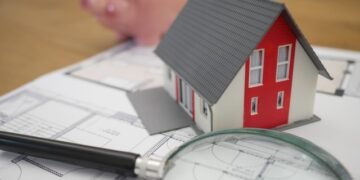The average lifespan of a house is somewhere between 100-150 years. If your house is almost as old as that, house settling usually occurs.
However, new houses do have the same foundation issues. House settling occurs when your home shifts and the structural integrity is compromised.
Determining house settling issues is the tricky part. If your home’s foundation shifts then foundation cracks or signs of broken support start showing up.
Read on if you think your house settling is turning into a bigger issue.
Causes of House Settling
If a house is settling, it’s unpleasant, even scary at times, and it needs addressing immediately. Discussing problems with the home is important, but causes of house settling are varied, and the problem may be a result of many things.
Expansion and Contraction of Soil
The expansion and contraction of soil are one of the leading causes of a house settling. When the soil beneath a house expands, it puts pressure on the foundation and can cause the house to settle. Contraction of the soil can also cause the house to settle, as the soil underneath shrinks and leaves voids.
Weight of the House
All houses settle to some degree over time. The rate at which a house settles is determined by its weight, the composition of the underlying soil, and the amount of moisture in the soil. The heavier the house, the greater the likelihood of settling.
How to Prevent House Settling
It’s important to address any issues your home is having to prevent further damage. Let’s now look into some ways to prevent our house from settling.
Get Your Foundations Checked
Foundation repair can involve reinforcing the foundation with additional support, such as piers or anchors, which can help prevent further settling and shifting. By foundation repair, you can help avoid settling a house and ensure your home remains stable and safe. If you suspect that your home’s foundation may be damaged or unstable, it’s essential to contact a professional for an inspection and evaluation of the problem.
Many factors can cause a foundation to settle, so it’s important to have an expert inspect your home. Once the problem is found, they can recommend the best course of action to take. This may include repairing or replacing the foundation.
Suppose you notice signs such as cracks in walls, uneven floors, doors, and windows that don’t close properly, or water damage. In that case, it’s important to schedule a foundation inspection as soon as possible to identify the cause of the problem and prevent further damage.
Clean Your Gutters and Downspouts
If you want to prevent your house from settling, it’s important to clean your gutters and downspouts. Leaves and debris can build up in your gutters, causing water to back up and seep into your foundation. This can lead to cracking and settling.
To avoid this, clean your gutters and downspouts regularly and make sure they’re clear of debris.
Repair Cracks
When dealing with structural issues like these, it’s important to consider professional Concrete Crack Repair services. These experts can assess the severity of the cracks and implement effective solutions to ensure the safety and longevity of your building or structure.
Structural cracks are dangerous because they can weaken the integrity of a building or structure, potentially leading to a collapse or failure. Cracks in foundation or load-bearing walls, for example, can compromise the entire structure’s ability to support its own weight and resist external forces like wind or earthquakes.
It is also important to keep an eye on the condition of the foundation and any cracks that may appear. Regularly check the basement or crawl space for any signs of moisture or water damage.
If you see any cracks in the foundation, have them repaired as soon as possible. You may also learn about house settling cracks here.
Know When to Call a Professional About House Settling
Crawl Space Jacks are an essential part of addressing house settling issues. These structural supports provide the necessary stability to prevent further settling and maintain the integrity of your home. Knowing when to call a professional about house settling is the first step in safeguarding your property.
If you think your house is settling, it’s important to call a professional who can do foundation repair. They will be able to assess the situation if there is cause for house settling concern.
If there is, they will be able to recommend the best course of action. Don’t wait until it’s too late.
Visit our blog more often if you think this post helped you somehow.










